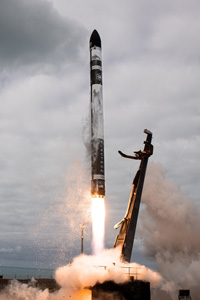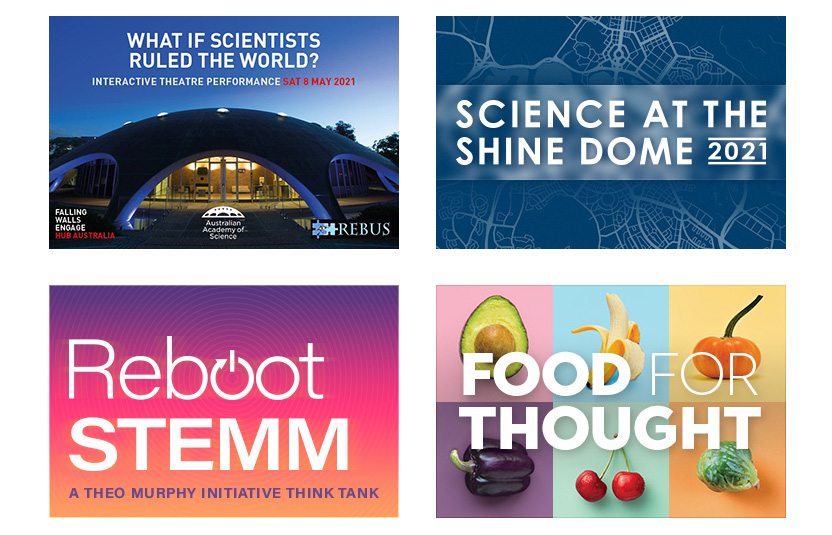
Contribute to the Space and Radio Science newsletter
If you would like to list your event or opportunity, or otherwise contribute to the next edition of the Space and Radio Science newsletter, please send content to icsu@science.org.au. Contributions will be published subject to approval by the National Committee for Space and Radio Science.
Subscribe
The National Committee provides this regular emailed newsletter containing updates from international scientific unions and committees and news related to the local scientific community, relevant funding opportunities, conferences and awards.
The Australian Academy of Science has released a landmark report, The risks to Australia of a 3°C warmer world, calling on the Australian Government to accelerate Australia’s transition to net zero greenhouse gas (GHG) emissions over the next 10 to 20 years to play our part in avoiding the worst impacts of climate change.
The report synthesises the observed impacts of climate change on Australia and the risk to our future of the current global trajectory of greenhouse gas emissions. It focuses on the consequences of 3°C of global warming in the absence of greater mitigation strategies for four areas of importance to Australia’s future: our ecosystems, food production, cities and towns, and health and wellbeing. The impacts of those changes on the lives and wellbeing of Australians are discussed in detail.
The Australian Government has unveiled a plan to create the world’s largest radio telescope in Western Australia, with a $387 million support package from the government. The funding will meet Australia’s commitments as co-host of the Square Kilometer Array (SKA) Observatory. The SKA Organisation leads the global project, comprising 16 countries. Australia and South Africa will host the low and mid frequency elements respectively. The SKA will address key science questions in astronomy related to the early evolution of the universe and galaxy. Construction is hoped to begin in Western Australia from early 2022 and last for up to 10 years. The Prime Minister outlined that the project forms part of the government’s National Economic Recovery Plan.
Reconsolidation of the Quadrilateral Security Dialogue, between Australia, the United States, Japan and India, has identified a number of critical areas for the countries to expand cooperation with one another. One beneficiary of the Quad re-formation is expected to be the nations’ respective space industries. India’s space agency, the Indian Space Research Organisation (ISRO), has signed agreements with the Australian Space Agency (ASA), NASA and the Japanese Aerospace Exploration Agency (JAXA) over recent years, opening the door to better inter-agency technology and information sharing between the nations.
The Quad must go to space, calls an article from the Australian Strategic Policy Institute (ASPI), as all four countries have a mutual interest in security and stability in the space domain. Of key concern is achieving space domain awareness—seeing all objects in space—which requires networks of ground- and space-based sensors. With our unique geographic advantages Australia will play an important role. Another aspect is developing resilient space architectures, such as sovereign launch capability and disaggregated constellations of small satellites. Quad members can also work together on flagship space exploration projects, such as NASA’s Artemis project and the Gateway lunar-orbit platform. The inclusion of space in international discussions is a part of the increasing interest and support from governments in innovating their space sectors to provide a sovereign space capability, such as the Australian Government’s support of the Moon to Mars initiative.
The Australian Government Department of Industry, Science, Energy and Resources has introduced the Moon to Mars initiative, with the aim for more Australian companies and researchers to take part in the space economy. By being a part of national and international projects, the initiative aims to create jobs and further position Australia as a global space player. With three investment programs: Supply Chain Program, Demonstrator Program, and the Trailblazer program, the initiative will see Australia contributing to the global space sector, while supporting NASA’s Moon to Mars endeavours and future space missions.
The Australian Government has released its Modern Manufacturing Strategy that aims to help Australian manufacturing scale-up and become more competitive and resilient. Space is one of six national manufacturing priorities. The strategy incorporates three key initiatives: the $1.3 billion Modern Manufacturing Initiative, the $107.2 million Supply Chain Resilience Initiative, and the $52.8 million Manufacturing Modernisation Fund.
The Australian Space Discovery Centre has been unveiled by the Prime Minister. The discovery centre is a new, interactive facility in Lot Fourteen on North Terrace in Adelaide that aims to inspire the Australian community and the next generation of the space workforce through stories of opportunity, curiosity and technology.
The Australian Government’s Advancing Space: Australian Civil Space Strategy 2019–2028 sets overarching goals—to triple the size of the Australian space sector to $12 billion and create up to 20,000 new direct and indirect space jobs by 2030. For comparison, this is twice the size of Canada’s space workforce. Australia’s Space Agency analysed the progress of the Australian space sector in the Australian Space sector economic report and has found that in 2018–19, space sector revenue grew from $4.3 billion to $4.6 billion, direct space jobs increased from 10,400 to 11,500 and the number of space organisations increased from 432 to 481.

The University of New South Wales (UNSW) Canberra Space M2 satellites have been launched into space as part of Rocket Lab’s ‘They Go Up So Fast’ mission from New Zealand. The M2 mission is a collaboration between UNSW and the Royal Australian Air Force (RAAF) and represents a leap forward for Australia’s sovereign space capability.
A feasibility study completed by UNSW Canberra Space for Geoscience Australia has found Australia to be in an ideal position to support land imaging programs and Earth observation images, reducing the reliance on foreign satellite and data sharing agreements in the development of a sovereign space capability. The observational monitoring could be used to track which parts of the country were becoming more at risk of bushfires or floods, or potentially monitor the condition of the Great Barrier Reef, among other uses.
Australia’s first private rocket testing site, the Helidon Rocket Test Site, has been developed by Rocket Technologies International and the University of Southern Queensland. The test site will allow space businesses the opportunity to test their equipment, furthering support for Australia’s fledgling rocket manufacturing companies as they move to enter the space race and increase Australia’s space capabilities.
New South Wales (NSW) has become the first state to launch an independent node of the SmartSat Cooperative Research Centre (CRC) with the aim to establish the state as the premier hub for commercial space technology in the Asia–Pacific region. The NSW Government has invited applications for co-funding of up to $100,000 for projects exploring ways to address challenges in agriculture, mining and resources, defence and security, transport, and bushfires and disaster management.
The University of Sydney has partnered with Thales Australia to develop transformational industry projects in aerospace, defence, security and transport fields. The research agreement is expected to centre on the identification of sensor technologies capable of operating in-orbit platforms. The partnership represents the opportunity to engage with global industry leaders while also nurturing Australia’s domestic capabilities.
The One Giant Leap Australia Foundation has sent wattle seeds to the International Space Station. The space journey of the seeds of Australia’s floral emblem, the golden wattle (Acacia pycnantha), was made possible by the Department of Industry, Science, Energy and Resources and its cooperation with Japan’s space agency (JAXA), with involvement from the agriculture department to ensure compliance with biosecurity requirements. The seeds will be in space for six months and then return to Australia in time for Science Week 2021. Supported by the Australian Space Agency, the foundation's ‘What’ll happen with the wattle?’ program is being offered to 150 schools across Australia, which will receive wattle seeds that have been flown to space as well as seeds that have not. The schools will germinate and grow the seeds, with data being uploaded to the ‘What’ll happen to the wattle??!’ app.
An inquiry established by the (then) Minister for Industry, Science and Technology into developing Australia’s space industry is in progress. The inquiry committee is chaired by the Hon Barnaby Joyce with cross-party membership. Submissions and transcripts of public hearings are very interesting.
The Advanced Manufacturing Growth Centre (AMGC) has received an additional $30 million in funding to continue supporting industry projects, called the AMGC Commercialisation Fund.
AMGC’s Commercialisation Fund will co-fund projects that focus on the six National Manufacturing Priorities, including space, recently announced by the Australian Government as part of its Modern Manufacturing Strategy. Find out more about the funding opportunities.
The Australian international airshow and aerospace and defence exposition, Avalon 2021, will be held from 30 November to 5 December. It will celebrate the centenary of the RAAF and be the most comprehensive aviation, aerospace and defence exposition in the Southern Hemisphere. Major industries including in the space sector will be featured. Concurrent conferences will also take place.

© 2025 Australian Academy of Science